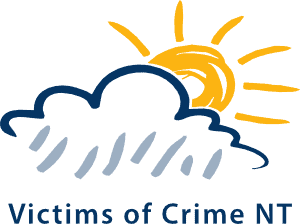For family and children
Keeping your family and young children safe is important for their individual social and emotional wellbeing.
Working together as a family unit, to support each other through life's hurdles and challenges, helps with everyone's wellbeing and emotional resilience.
Feeling safe and secure, assists us all in overcoming any challenges we face.
| Important numbers | Contact |
|---|---|
| Emergencies | 000 |
| Police assistance | 131 444 |
| Fire assistance | 132 500 |
| NT Emergency Services assistance | 08 8999 3473 |
| Crime Stoppers NT (to report suspicious behaviour) | 1800 333 000 |
| Victims of Crime NT | 1800 672 242 |
Your family's safety
Your family's safety has many considerations, focussing on your family's well-being, security, and protection. Considerations such as, but not limited to:
- physical and emotional wellbeing
- financial safety and awareness
- staying safe at school
- cultural and social awareness
- staying safe online.
You and your family can keep ahead of the ever-evolving challenges and risks by:
- encouraging open communication
- keep up to date with current information
- introducing proactive measures.
Staying safe at home
The Department of Territory Families, Housing and Community have come up with 7 Steps to Safety.
These 7 steps are designed to help you give your child the skills and confidence they need to feel and be safe at home.
Leaving your child home alone
There come be a time when you’ll start to consider if your child can be left at home on their own. There are many things to think about when you start to consider this. These include:
- safety
- the ages of your children
- how mature and capable they are
- whether they understand the rules
- whether they could cope in an emergency.
The NT Government's website has tips on how to decide when you can safely leave your child at home alone and how you can prepare.
Your child and emergencies
Children have been known to save members of the family or friends by calling 000 and giving the right vital information.
Take time and talk to your children about emergencies, what they could be and how to react. Here are some examples of how you can teach your child what to do in an emergency:
- play the 000 game
- talk about emergencies, what they are and who they should contact for the type of emergency
- practice using a phone and role play a 000 situation
- teach your children their name, address and phone number if possible.
The NT Government's website has great information and tips about teaching your child to call 000.
Supporting your child
Experiencing a crime can challenge your child's sense of security and their predictability of the world. The way your child reacts to a traumatic event depends on a number of factors.
Your child may not react in the ways you expect.
Victims of Crime NT has some good tips and information on how can support your child through such an event.
At risk-child or young person
If you need help to address the anti-social behaviour of a child or young person in your care, you can enter into a family responsibility agreement.
Go to the NT Government website for more information.
Child or young person identifying as LGBTIQA+
If you have a child or young person who has identified as LGBTIQA+ the NT Government website has information on:
- how to support your child and keeping them safe
- health and wellbeing services for transgender and gender diverse children.
There are many organisations with information and tools that can assist you and your child, here are some links that can assist you, your child and family:
Recovering from a crime
If you have experienced crime, you may feel a range of strong emotions. You aren't alone and there are many services that can support you and your family.
Victims of Crime NT has some good tips and information to help you through such an event.
Find out more
Who can help
NT Police
Call 131 444 in non-emergencies.
In emergencies call 000
Crime Stoppers NT
Call 1800 333 000

Victims of Crime NT
Free call: 1800 672 242
Darwin: 08 8941 0995
Alice Springs: 08 8952 4466
Neighbourhood Watch NT
Call 08 8999 0847